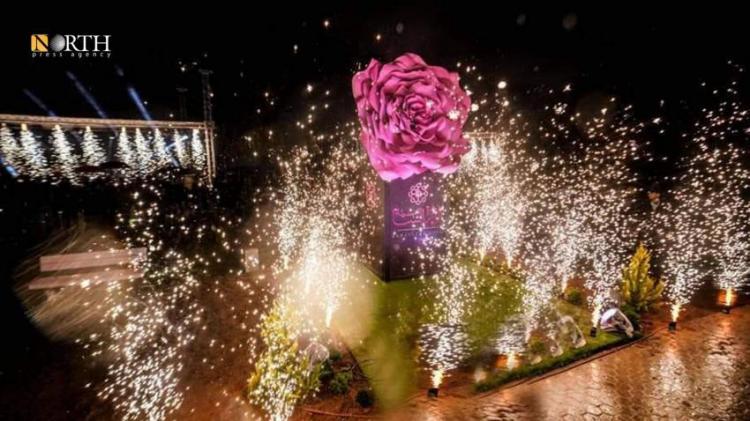“Rosa Damascena”, the Syrian Ambassador on UNESCO’s List of Intangible Heritage
Damascus – North-Press Agency
"Rosa Damascena", the scientific name of Damask Rose (Damascus), has long been a symbol of the Damascene people, the Syrian capital, and a source of sustenance and food, which the United Nations Educational, Scientific and Cultural Organization (UNESCO) has included on the list of intangible heritage during the annual meeting of the International Committee for the Safeguarding of the Intangible Cultural Heritage, that was held in the Colombian capital, Bogota.
"The practices and crafts associated with Damask Rose include a range of medicinal, nutritional and cosmetic uses," UNESCO said on its website. "Rosa Damascena begins to bloom in May, the harvest season and the accompanying annual festival begins with it, as farmers engage with family members in picking the rose with their hands, then they collect the rose buttons to make sipping flowers like tea."
Last Friday evening, the "Syrian Trust for Development" celebrated the registration of Rosa Damascena (Damask Rose) on the list of "UNESCO" at the Umayyad Square, which was decorated with a special monument of the rose. The ceremony also included musical performances by the Musical Band at the Higher Institute of Music in Damascus.
The statement of the "Syrian Trust for Development" read: "Rosa Damascena is considered an important and inherited Syrian heritage component for generations. the aromatic oils are a real and natural treasure. From Damascus, the most expensive Rosa Damascena oil was released among the aromatic oils and spread its fragrance all over the world. The famous perfume brands are still synthesizing the most luxurious perfumes of Rosa Damascena oil."
The area of al-Nabk in the region of al-Qalamoun, northern Rif Dimashq governorate 80 km, especially the village of al-Merah, is the most famous for its cultivation due to the natural conditions that suit the rose regarding the air and the soil it is grown in. The harvest season begins with the beginning of summer season, with the end of the month May, when women prepare the rose syrup, jam, and sweets, and pharmacists, in turn, sell the dried Rosa Damascena for its numerous medicinal benefits.
Rosa Damascena is characterized by medicinal, aromatic, nutritional and cosmetic benefits, where during the harvest season, a social atmosphere prevails among the peasants, where the rose is picked and collected in plastic baskets to be transferred either to a factory to extract the oil from the petals of the rose, or to a medical factory to make medicines from it, also the famous rose syrup is made from Rosa Damascena.
The cultivation of Rosa Damascena was affected during the Syrian crisis by the economic sanctions imposed on Syria, where the demand for the rose was decreased after it was one of the first Syrian exports to several Arab and Western countries.
The total area planted by Rosa Damascena in the northern countryside of Damascus for the year 2019 is around 265 hectares, which produced about 35 tons of roses.
As the Syrian Trust for Development has given a great attention to Rosa Damascena since 2007, through programs it has supported the spread of the rose by granting advanced payments to farmers of Rose Damascena in its multiple cultivation areas, while encouraging its cultivation in new areas, and contributing to securing free seedlings in cooperation with the Ministry of Agriculture, as well as securing sales outlets for it, to ensure an economic income that contributes to helping its farmers.

